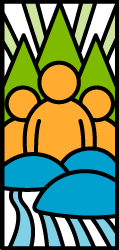Julie Hart

Julie Hart
Current Position
Conservation Biologist at the Vermont Institute of Natural Science.
Previous Position
Wildlife Migration Intern, Breeding Bird Atlas Blockbuster, Ivory-billed Woodpecker Searcher, Island Supervisor, Kokako Field Assistant, Bird Conservation Specialist, Loon Biologist.
Education
B.S. (Environmental Science)
Q & A
A life-long yearning to be outdoors and to help conserve wildlife led me to a career in natural resources. My career has focused on bird conservation, which allows me to study birds in their natural environments, improve our understanding of birds and ecology, and use this research to guide conservation efforts.
The sense of satisfaction that comes from working for something I believe in and that I am passionate about.
It constantly amazes me how many skills you need to nurture to be successful in the field of conservation biology. A good science background is essential, but you also need to develop skills in communication, public outreach, politics, statistics, information technology, and fundraising, among others.
Increasing population growth and climate change threaten to dramatically shift the balance of natural systems. In order to ensure that we conserve biodiversity, conservation biologists will have to work hard to understand the ecological requirements of plants and animals and the interconnectedness between biotic and abiotic factors within ecosystems. In order to apply this information to guide conservation, conservation biologists will increasingly need to be well-versed in science, politics, and education.
Experience goes a long way. An understanding of natural resources, mathematics, and communication are very important, but do not substitute for the ability to apply those skills in real-life settings. Internships and seasonal jobs are great opportunities to expand on formal education, to gain the necessary experience to compete for full-time jobs, and to try out different fields and determine where one's passion lies. Passion is essential for a career in conservation biology where jobs are scarce and income is usually low.

